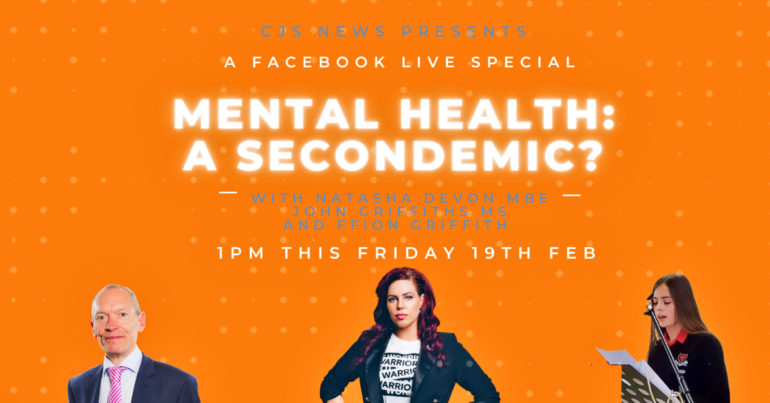With half term coming to an end, some primary school pupils in Wales will be heading back to the classroom for the first time since before Christmas.
Yet secondary schools will remain shut and most pupils will continue with online learning for the foreseeable future.
It means older pupils have now been learning remotely for almost a year and it’s clear that this is having a significant impact on their mental health.
According to the Office for National Statistics, four in 10 people aged 11 to 16 say lockdown has made their life worse. When schools did reopen for a brief period in September, almost 70% of pupils said their mental health was “poor” when they returned to the classroom.
The impact on physical health has been clear and, rightly, no effort has been spared to care for those struck down with the disease in hospitals, GPs surgeries and vaccination centres across the UK.
But with NHS services stretched to breaking point by the physical health crisis, what hope is there that already over-stretched mental health services for young people – such as Camhs – can cope with the second element of the pandemic.
That’s why we’re using #Secondemic this week, to ask: has enough been done to support young people during the pandemic?
How important is school to a young person’s overall wellbeing and has the impact of enforced online learning been fully considered by the Welsh Government?
When secondary schools do reopen, what new or extra support needs to be available for returning pupils?
These are just some of the questions we’ll be putting to a panel of three experts on CJS News Facebook Live event this Friday, February 19 at 1.30pm.
Our guests are:
- Natasha Devon: Mental health activist, writer and presenter
- Ffion Griffith: Welsh Youth Parliament member
- John Griffiths: MS for Newport East, former lecturer, former Deputy Minister for Education and former Deputy Minister for Health and Social Services.
Most importantly we want also to hear from you. Whether you’re a pupil, parent, teacher or psychologist – if you’d like to ask one of our panel as question or even just share your experiences and thoughts on the subject, then please get in touch.
You can submit your questions before or during Friday’s Facebook Live event here.
You can also follow CJS News on Twitter, Facebook and Instagram.

